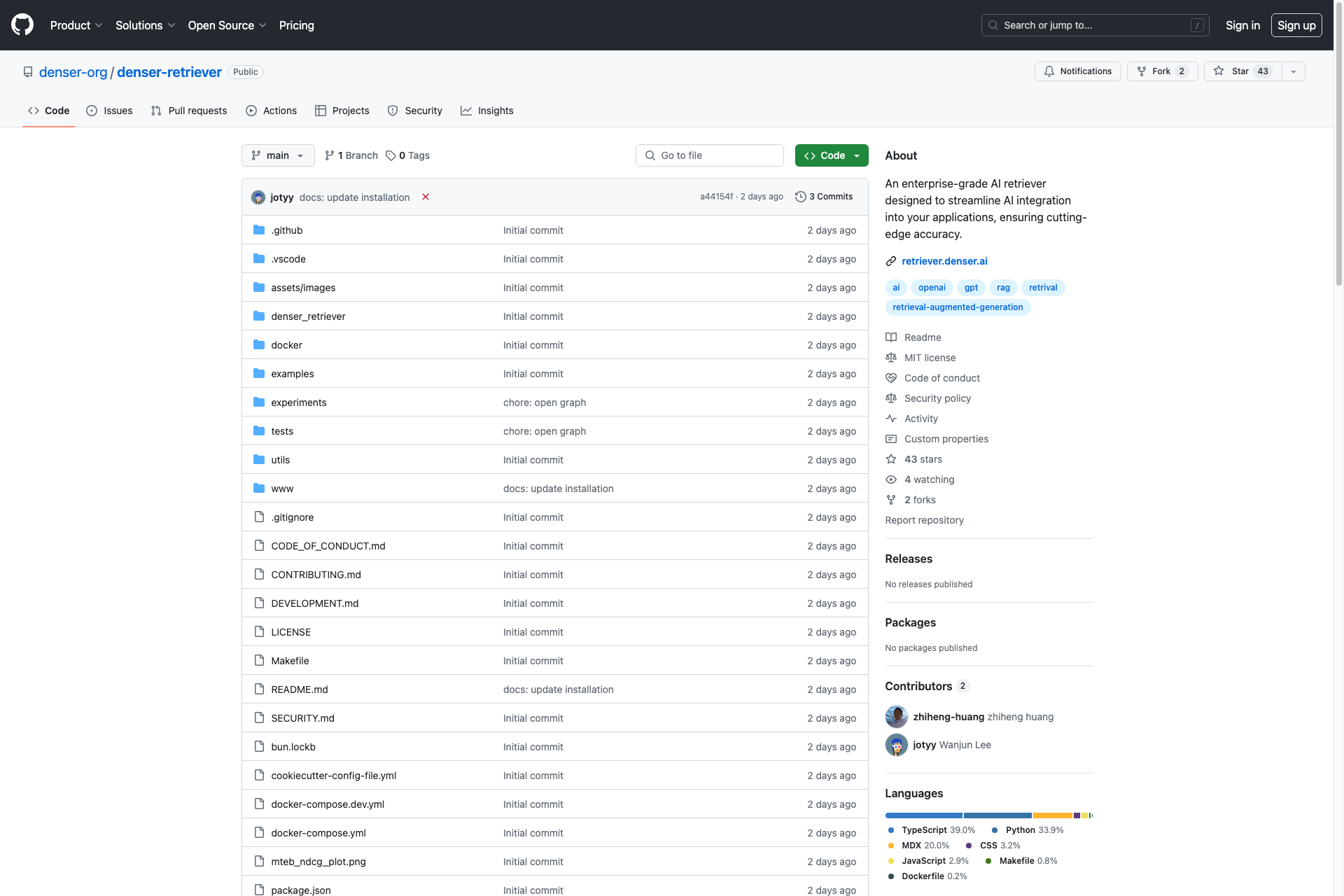Denser Retriever
An enterprise-grade AI retriever designed to streamline AI integration into your applications, ensuring cutting-edge accuracy.

Key Features of Denser Retriever
Heterogeneous Retrievers Support
Supports various retrieval methods including keyword search, vector search, and machine learning model reranking.
XGBoost Machine Learning Technique
Utilizes the xgboost ML technique to effectively combine multiple retrieval methods for enhanced performance.
State-of-the-Art Accuracy
Achieves top-tier accuracy on MTEB Retrieval benchmarking, ensuring reliable results.
End-to-End Application Integration
Demonstrates capabilities for powering comprehensive applications like chatbots and semantic searches.
Easy Installation via Python
Simplifies installation with pip and poetry commands for quick setup in your environment.
Comprehensive Documentation
Provides extensive documentation hosted at retriever.denser.ai for user guidance and support.
Frequently Asked Questions about Denser Retriever
Related Products about Denser Retriever

Streamline your customer support operations with our advanced AI chatbot. Revolutionize your business and reduce costs by up to 60%. Continuously Learning and Adapting Chatbot Based on Customer Interactions.

Your go-to AI-powered tool for effortlessly creating professional photos. Elevate your image with ease – precision meets convenience. Say goodbye to the ordinary, and embrace the extraordinary.

After seeing worthless.app I wanted to share this personal blog post of mine. I'm dedicating all my time into this and one app can overtake with its..hmm.hmm not..hmm NOTHING content. I'm just making fun of the situation, nothing to take serious. Cheers

Fima combines project management, chat, document sharing, and video calls, perfect for small businesses and startups.

Mebot acts as your second brain, designed to remember everything for you and enlighten you at any moment! This sophisticated digital 'you' helps you manage your thoughts, ideas, and documents efficiently, ensuring that nothing slips through the cracks.

Transform your content creation with Synapso.AI, the ultimate AI-driven solution for impactful marketing content. Effortlessly generate compelling copy that engages your audience and boosts conversions for Free today!

OpenAI recently announced a new feature: custom GPTs. CoolGPTs is a catalog of best GPTs on the platform.
